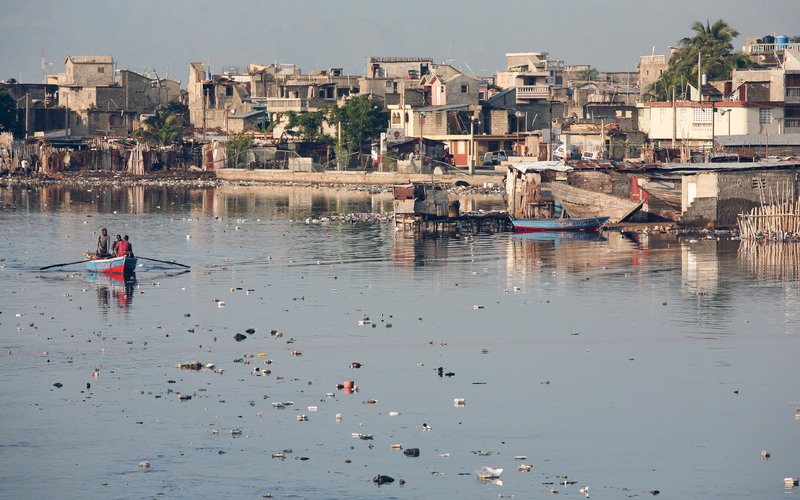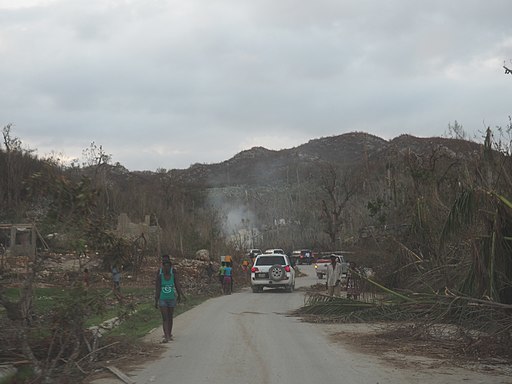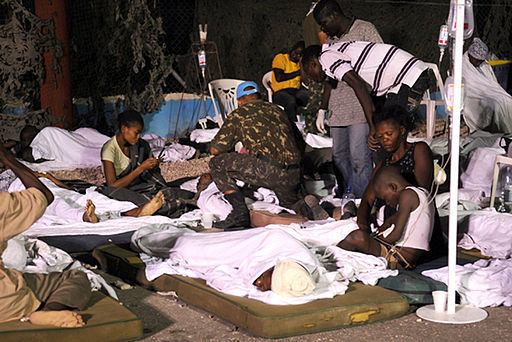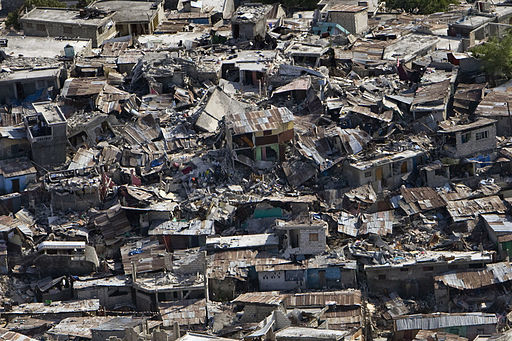Effects of the Occupation
Following Franklin D. Roosevelt's "Good Neighbor" policy and the end of the U.S. military occupation of Haiti in 1934, the small nation is still experiencing the effects of the invasion. Haiti is currently the poorest nation in the Western Hemisphere with 60 percent of its population living below the national poverty line. As of December 31, 2017, Haiti's external debt totalled an estimated $2.762 billion, with their public debt amounting to 31.1 percent of the GDP. Many of Haiti's misfortunes can be traced back to the period of occupation from 1915 to 1934.
In a 2005-2006 poll, 67 percent of Haitians responded they would emigrate if the opportunity presented itself. The same poll found that four-fifths of college-educated citizens live outside of Haiti. Haiti experiences human capital flight, also known as "brain drain," which is the emigration of highly-skilled or intelligent individals, usually due to the desire for a higher standard of living.
Despite the physical absence of the U.S. Marines in Haiti, Haiti felt the economic presence of the United States until it could pay off its debts in 1947. The United States aided Haiti in paying off its debt to France, but this left Haiti with loans owed to the U.S., and Haiti had to almost completely deplete their gold reserves to cover the bill. The Americans also left behind prejudices, with most U.S. officials favoring light-skinned, mixed-race Haitians known as "mulattos," which gave this group of people significant economic and governmental advantages. This led to segregation in parts of the country, especially in Port-au-Prince, where blocks of the city were restricted to the darker-skinned, "noir" population.
In 1957, Haiti's government was seized by François Duvalier, also known as "Papa Doc." Papa Doc established a dictatorship that would reign until the Reagan Administration forced his son Jean-Claude Duvalier, "Baby Doc," out of office in 1986. Papa Doc was initially supported by the U.S. government because he was staunchly anti-communist. This stance caused the U.S. to ignore the corruption and human rights violations that came from the Duvaliers. Many businessmen and politicians were also hoping that Duvalier's government would allow for the opportunity to exploit Haiti and turn it into the "Taiwan of the Caribbean." Under the rule of Papa Doc, the economy of Haiti moved towards manufacturing and export and away from agriculture. This shift was made based on counsel from American financial investors. Unfortunately, this economic plan failed and only forced Haiti to become more independent on imports and the global economy. In 2011, external debt estimates totalled Haiti's debt to the U.S. at $1.3 billion, with 40 percent of that debt belonging to the Duvaliers. Following the end of the Duvalier regime, another military dictatorship arose, leading Ronald Reagan to suspend aid to the country.
Following Reagan, George H.W. Bush also suspended humanitarian aid to Haiti, and from 1991 to 1994, Bill Clinton imposed an economic blockade. In 1994, the Clinton Administration intervened in Haiti and returned Jean-Bertrand Aristide to office. Aristide was first democratically elected in 1990 and was subsequently overthrown in 1991. In 2011, the Obama Administration fought to keep minimum wage at 31 cents per hour after the Haitian government raised it to 61 cents per hour.
The martial law established by the U.S. Marines laid the foundation for future dictatorships in Haiti. The gendarmerie was a blueprint for Papa Doc's paramilitary force, Les Tontons Macoutes, named for the legend of a man (Tonton) that would kidnap difficult children and put them in a sack (macoute) to be eaten for breakfast. Despite claiming that U.S. intervention would restore peace in Haiti, the invasion has only exacerbated Haiti's position on the world stage to the point where Haiti is now suffering from "over-aid," making it reliant on outside sources instead of being self-sufficient. This is especially prevalent after the numerous natural disasters that Haiti has faced, like the 7.0 magnitude earthquake that rocked the country in 2010. The earthquake left over one million people homeless and 316,000 dead. By early 2016, 62,000 people were still without homes and 770,000 people had contracted cholera. Overall, Haiti has benefitted very little from U.S. occupation. The infrastructure accomplishments fell into disrepair, Haitian politics reverted back to the spoils system that had been so prevalent before 1915, and the occupation failed to establish Haiti as an economic and political world power.
Researched and written by Ashley Botkin


